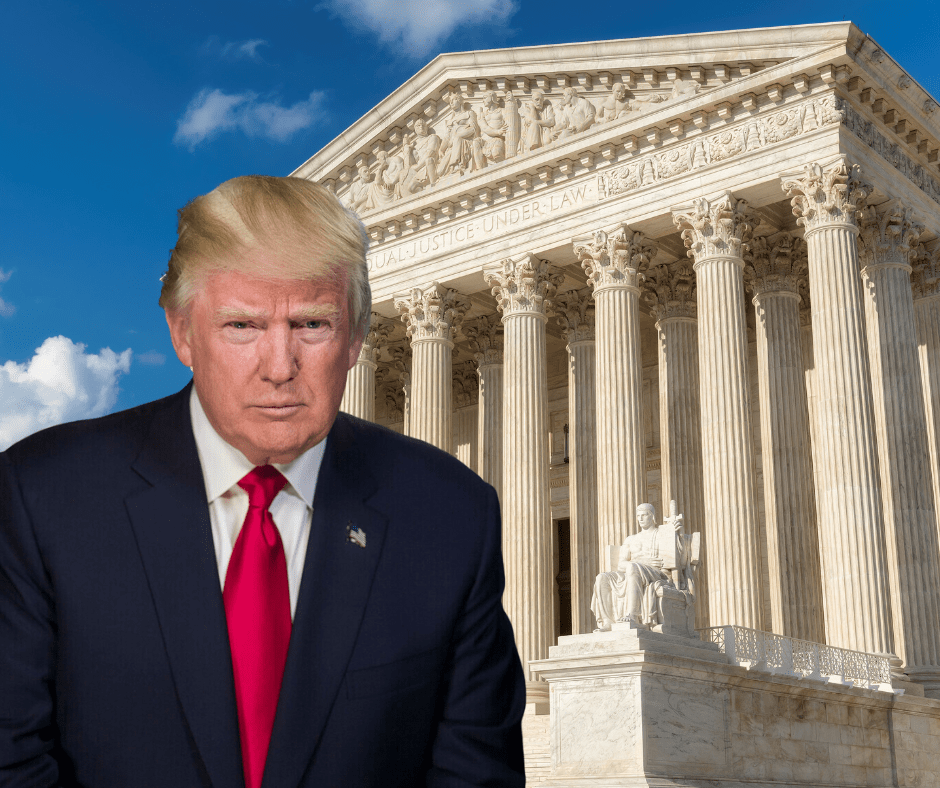
Can Trump Pardon Himself if Elected?
Do you think self-pardons are constitutional?
What's the story?
- In light of Trump's legal troubles, the debate over whether a president has the right to pardon himself has been reignited. The Constitution gives the president broad power to grant pardons in federal cases, but the text is ambiguous regarding whether this power extends to a self-pardon.
- Trump is currently facing three separate criminal indictments, two of which are federal and one brought by the state of New York.
- In 2018, the president tweeted that he had the "absolute right" to pardon himself.
What we know
- Article II, Section 2 of the Constitution establishes the president's ability to issue pardons with two fundamental limitations. The first limitation is that the president can only pardon federal-level "offenses against the United States." If re-elected, Trump could not pardon himself in the New York case because the Constitution does not allow presidential pardons for state crimes.
- The second limitation precludes a sitting president from pardoning anyone in cases of impeachment, including themselves.
- The Supreme Court has ruled that the president can pardon someone at any time after a crime has been committed, "either before legal proceedings are taken or during their pendency, or after conviction and judgment."
What we don't know
- The verdict remains inconclusive because self-pardon is an untested gray area in American legal history. The Supreme Court has not yet ruled on the question and remains undecided.
- Richard Primus, a legal scholar and law professor at the University of Michigan, said:
"I think it's pretty clear that there's a right answer, and that answer is self-pardon should not be regarded as valid. A power to self-pardon would violate the basic rule-of-law principle that no person should be allowed to adjudicate his own case."
- Before the 1974 resignation of President Richard Nixon, a Justice Department memorandum asserted that the president did not have the right to pardon himself because of the longstanding principle that "no person may be a judge in his or her own case."
- In the memorandum, Mary Lawton said:
"Under the fundamental rule that no one may be a judge in his own case, the President cannot pardon himself."
- However, Jonathan Turley, a legal scholar and law professor at George Washington University, interprets the Constitution differently:
"The language of Article II is quite explicit in giving the president a pardon power over federal offenses with the only exception related to impeachments. Donald Trump can certainly make a good-faith textual case for the right to self-pardon."
- Matthew Mangino, a criminal attorney, said:
"There's nothing that says [Trump] can't actually issue the pardon. The question is, is it enforceable? And the courts would have to decide that."
- If Trump is re-elected and issues himself a self-pardon, it would likely be challenged in court as an abuse of the Constitution, a violation of the pardon power, and thus invalid.
Do you think self-pardons are constitutional?
—Emma Kansiz
(Photo Credit: Flickr/GPA Photo Archive)
The Latest
-
 Changes are almost here!It's almost time for Causes bold new look—and a bigger mission. We’ve reimagined the experience to better connect people with read more...
Changes are almost here!It's almost time for Causes bold new look—and a bigger mission. We’ve reimagined the experience to better connect people with read more... -
 The Long Arc: Taking Action in Times of Change“Change does not roll in on the wheels of inevitability, but comes through continuous struggle.” Martin Luther King Jr. Today in read more... Advocacy
The Long Arc: Taking Action in Times of Change“Change does not roll in on the wheels of inevitability, but comes through continuous struggle.” Martin Luther King Jr. Today in read more... Advocacy -
 Thousands Displaced as Climate Change Fuels Wildfire Catastrophe in Los AngelesIt's been a week of unprecedented destruction in Los Angeles. So far the Palisades, Eaton and other fires have burned 35,000 read more... Environment
Thousands Displaced as Climate Change Fuels Wildfire Catastrophe in Los AngelesIt's been a week of unprecedented destruction in Los Angeles. So far the Palisades, Eaton and other fires have burned 35,000 read more... Environment -
 Puberty, Privacy, and PolicyOn December 11, the Montana Supreme Court temporarily blocked SB99 , a law that sought to ban gender-affirming care for read more... Families
Puberty, Privacy, and PolicyOn December 11, the Montana Supreme Court temporarily blocked SB99 , a law that sought to ban gender-affirming care for read more... Families
 Climate & Consumption
Climate & Consumption
 Health & Hunger
Health & Hunger
 Politics & Policy
Politics & Policy
 Safety & Security
Safety & Security
